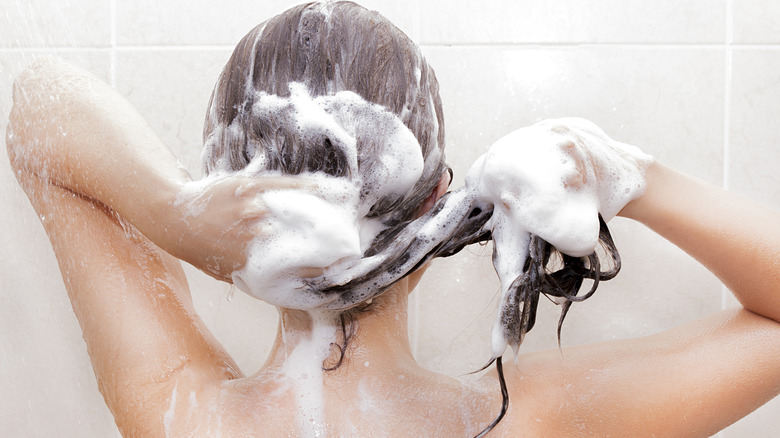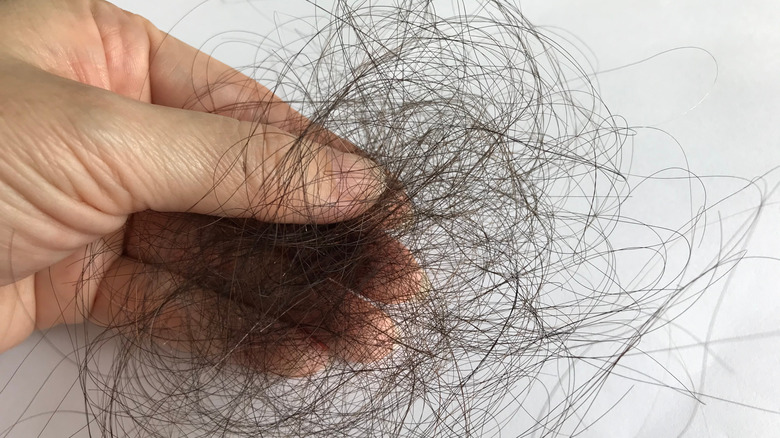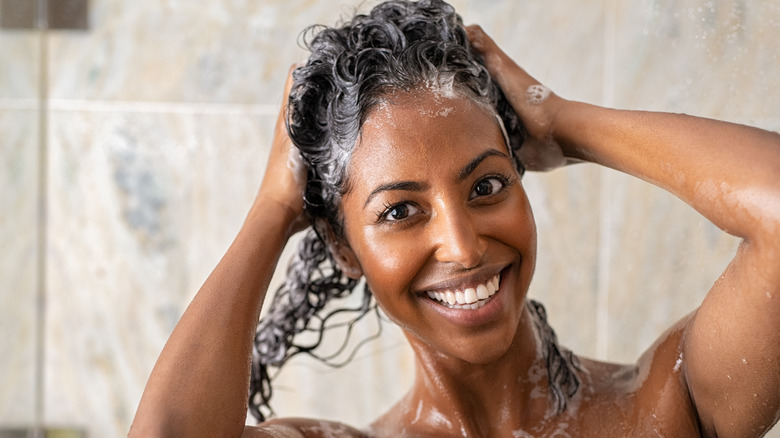Ingredients In Your Conditioner That Could Be The Culprit Of Your Hair Loss
We may receive a commission on purchases made from links.
Conditioner might just be mankind's greatest invention since the wheel. While shampoo cleanses the hair of impurities and product buildup, conditioner softens and moisturizes the shaft itself. Anyone who has dealt with tangled hair understands the importance of using conditioner and how silky-soft your locks feel after rinsing it out. However, not all conditioners are created equal.
In fact, you'd be surprised to find out that some of them could even be the cause of your hair loss. Conditioner is a must-have for, well, everyone, but especially those of us who suffer from dry hair. Conditioners act in different ways depending on their formula, such as humectants, which draw moisture from the atmosphere, or penetrate directly into the hair shaft.
However, certain conditioners contain harmful ingredients that do more harm than good to your strands in the long run. If your conditioned hair feels great right after washing, only to switch up negatively in the days after, then you need to check the ingredients label closely before continuing to use it.
These ingredients could be breaking off your locks
The properties of a great conditioner go beyond how it feels immediately after use. You might think your hair is moisturized to perfection, only to notice some breakage over time. It can be frustrating knowing you followed a strict haircare routine only for it to result in more loss and not even understand why. The answer may lie in the formula of the conditioner itself. Hair Creative Director of WigReports and pro-stylist Lauren Udoh told SheFinds that one of the major ingredients to look out for when buying conditioner is sulfates.
"This harsh detergent, sodium lauryl sulfate [SLS] is a common ingredient in shampoos and conditioners," Udoh pointed out. Sulfates are known to "strip away natural oils" from your strands. According to Udoh, this ingredient causes dryness, breakage, scalp irritation, and, ultimately, hair loss. Other firm no-nos are alcohol and silicones. Alcohol is a popular drying agent, which should tell you all you need to know about why it's not good for your hair.
Professional hairstylist and CEO of Freewell Shandi Nichelle frowns upon conditioners that contain alcohol and silicones, noting, "While silicones can give your hair an immediate feeling of softness, over time, silicones build up on your hair, weighing any type down, but especially fine hair." Fortunately, brands are moving away from using these harmful substances in their formulas but plenty still do. Hence why checking the ingredients before purchasing is important.
Find out which conditioner is best for your hair type
Now that you're aware of which ingredients to avoid when choosing your conditioning products, you also need to know what conditioner you should really be using based on your hair type. For instance, if you have thin hair, you do not want to use conditioners formulated for thick hair. You should also steer clear of heavy conditioners that will weigh down your strands and cause tension.
Natural oils contain nutrients that nourish your hair and scalp, contributing to hair growth. Always choose conditioners that contain oils like jojoba, coconut, argan, and almond for a major boost. We recommend trying the Faith In Nature Jojoba Conditioner, which notably doesn't contain silicones, sulfates, or parabens. Jojoba oil contains a host of vitamins such as vitamins C, B, and E, as well as minerals like zinc which are great for hair health. You can also find this product on Amazon too.
Although conditioner is a great product for keeping your hair moisturized, you should refrain from using it too often, particularly deep conditioners. According to Healthline, hygral fatigue is caused by the repeated swelling of the cuticle as a result of too much moisture and can happen if you deep condition your hair every day.


